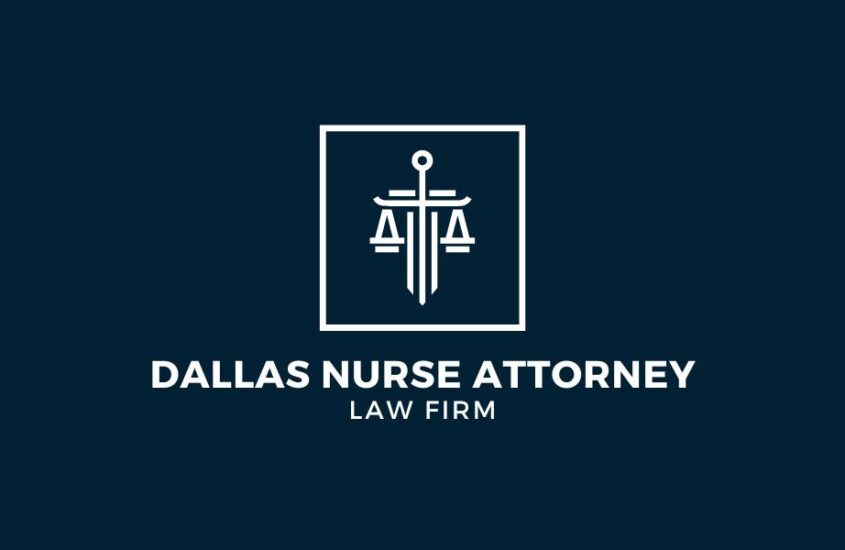Dallas Nurse Attorney

In the healthcare field, nurses play a vital role in providing care and ensuring the well-being of patients. However, there may be instances where nurses face legal challenges or encounter situations that require legal assistance. This is where a Dallas Nurse Attorney can be of immense help. In this article, we will explore the role of a Dallas Nurse Attorney, their qualifications, the services they provide, common legal issues faced by nurses, how to choose the right attorney, and the benefits of hiring one.
Role of a Dallas Nurse Attorney
A Dallas Nurse Attorney specializes in providing legal representation and guidance to nurses in various legal matters. They possess in-depth knowledge of healthcare laws, regulations, and policies, and apply that knowledge to assist nurses in protecting their rights, resolving legal disputes, and navigating through complex legal processes.
Qualifications and Expertise
To become a Dallas Nurse Attorney, one must first obtain a law degree and pass the state bar exam. Additionally, they often have prior experience in the healthcare field, such as nursing or healthcare administration. This unique combination of legal and healthcare expertise allows them to understand the intricacies of nursing practice and effectively advocate for their clients.
Services Provided by a Dallas Nurse Attorney
Dallas Nurse Attorneys offer a wide range of services tailored specifically to the needs of nurses. A Dallas nurse attorney provides a range of valuable services that blend the expertise of nursing and law to support nurses in legal matters. These professionals offer guidance and representation to nurses facing disciplinary actions from their licensing boards, such as investigations, hearings, and appeals. They also assist nurses with legal issues related to their practice, including malpractice claims, employment contracts, and regulatory compliance. Additionally, a Dallas nurse attorney can provide education and training to nurses regarding legal and ethical responsibilities, helping them navigate the complex healthcare system while protecting their professional interests. By combining their knowledge of healthcare regulations and legal principles, these attorneys play a vital role in advocating for nurses’ rights and ensuring the highest standards of patient care are upheld.
Legal Consultation
A nurse attorney can provide legal advice and guidance on various issues, such as licensing, scope of practice, employment contracts, and ethical dilemmas. They help nurses understand their rights and responsibilities, ensuring compliance with relevant laws and regulations.
License Defense
If a nurse’s professional license is at risk due to an allegation of misconduct or a complaint filed against them, a nurse attorney can help in building a strong defense. They will represent the nurse during the investigation process and advocate for their rights in administrative hearings or disciplinary proceedings.
Employment Issues
Nurse attorneys assist nurses in dealing with employment-related matters, such as wrongful termination, discrimination, or contract disputes. They can review employment contracts, negotiate on behalf of the nurse, and take legal action if necessary.
Medical Malpractice Claims
In cases where a nurse is accused of negligence or involved in a medical malpractice lawsuit, a nurse attorney can provide representation and work alongside other healthcare professionals and defense attorneys to protect the nurse’s interests.
The Legal Process for Nurses
When a nurse is faced with a legal issue, it is essential to understand the legal process involved. Typically, the process begins with an investigation or complaint, followed by gathering evidence, negotiations, and, if needed, litigation. Throughout this process, a nurse attorney will guide and represent the nurse, ensuring their rights are protected and their case is presented effectively.
Common Legal Issues Faced by Nurses
Nurses may encounter various legal challenges during their careers. Some common issues include:
- Licensing and disciplinary actions
- Scope of practice disputes
- Employment contract disputes
- Medical malpractice allegations
- Privacy and confidentiality concerns
- Ethical dilemmas
How to Choose a Dallas Nurse Attorney
Selecting the right Dallas Nurse is crucial for obtaining the best possible legal representation. Consider the following factors when choosing an attorney:
- Experience: Look for an attorney with a proven track record in representing nurses and handling healthcare-related cases.
- Specialization: Ensure that the attorney specializes in nursing and healthcare law.
- Reputation: Check online reviews, testimonials, and references to gauge the attorney’s reputation and client satisfaction.
- Communication: Choose an attorney who communicates effectively, listens attentively, and keeps you informed about the progress of your case.
- Fee Structure: Discuss the attorney’s fee structure upfront to avoid any surprises later.
Benefits of Hiring a Nurse Attorney
Hiring a Dallas Nurse offers several benefits for nurses:
- Legal Expertise: Nurse attorneys possess comprehensive knowledge of healthcare laws and regulations, enabling them to provide accurate legal advice and representation.
- Protection of Rights: Nurse attorneys advocate for nurses’ rights, ensuring fair treatment and protecting them from potential legal consequences.
- Peace of Mind: By hiring an attorney, nurses can focus on their work and have confidence that their legal matters are being handled professionally.
- Strong Defense: In cases of legal disputes, nurse attorneys build a strong defense strategy to protect the nurse’s reputation and professional standing.
- Guidance and Support: Nurse attorneys provide guidance throughout the legal process, answering questions, and offering support to alleviate stress and uncertainty.
Case Studies
Case Study 1: License Defense
Sarah, a registered nurse, faced a complaint that threatened her professional license due to allegations of misconduct. She hired a Dallas Nurse who successfully defended her case, presenting evidence to refute the allegations. The attorney guided Sarah through the entire process, and her license was ultimately preserved.
Case Study 2: Employment Contract Dispute
John, a nurse practitioner, was involved in a contract dispute with his employer. With the assistance of a nurse attorney, he negotiated favorable contract terms and resolved the dispute without the need for litigation. The attorney ensured that John’s rights were protected and his interests were represented effectively.
Frequently Asked Questions
- Q: What is the role of a Dallas Nurse Attorney? A: A Dallas Nurse Attorney provides legal representation and guidance to nurses, specializing in healthcare law and assisting with various legal issues.
- Q: How do I choose the right nurse attorney? A: Consider factors such as experience, specialization, reputation, communication, and fee structure when selecting a nurse attorney.
- Q: What are the common legal issues faced by nurses? A: Nurses may encounter legal challenges related to licensing, scope of practice, employment contracts, medical malpractice, privacy, and ethics.
- Q: What are the benefits of hiring a nurse attorney? A: Hiring a nurse attorney ensures legal expertise, protection of rights, peace of mind, strong defense, and guidance throughout the legal process.
- Q: Can a nurse attorney help with license defense? A: Yes, a nurse can assist in defending a nurse’s professional license during disciplinary actions or investigations.
Conclusion
In the complex and demanding healthcare industry, nurses may face legal challenges that require professional assistance. A Dallas Nurse Attorney specializes in providing legal representation and guidance tailored to the unique needs of nurses. By understanding the role, qualifications, and services offered by nurse attorneys, nurses can make informed decisions and protect their professional interests effectively. A Dallas nurse attorney is not typically involved in the sale or maintenance of gym equipment.









